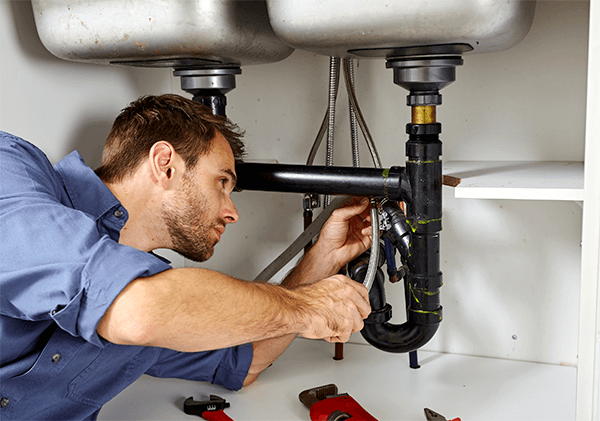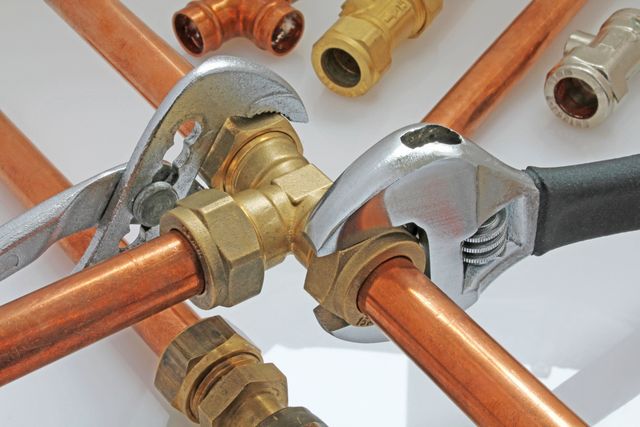Steps to Fix Emergency Plumbing with Quick Solutions Until Help Arrives
Book InspectionWhat're your ideas regarding Expert Tips for Emergency Plumbing Repairs?

Pipes emergency situations can strike any time, triggering stress and anxiety and prospective damage to your home. Whether it's a burst pipe, a blocked drain, or a dripping tap, recognizing just how to take care of the circumstance up until an expert plumbing arrives can save you from further complications. This article gives essential emergency situation pipes ideas to assist you reduce damage and regain control throughout a pipes dilemma.
Shut off the Water Supply
The first step in any kind of pipes emergency is to shut off the water system. For localized issues, such as a leaking tap or bathroom, turn off the shutoff near the component. In the case of a major leak or ruptured pipeline, find your home's main water shut-off shutoff and transform it off instantly. Recognizing the place of these valves ahead of time can conserve important time during an emergency situation.
Shut Off Your Hot Water Heater
In specific emergencies, such as a ruptured pipeline, it's a good idea to shut down your water heater. This prevents getting too hot or damage to the device when water quits flowing. Switch off the power supply to the water heater (electric or gas) and allow it cool down to stay clear of prospective hazards.
Momentarily Stop a Ruptured Pipe
A ruptured pipe can lead to considerable water damages in minutes. To minimize the problem:
Call an expert plumber promptly to resolve the issue completely.
Have an Emergency Plumbing Package
Prepare a basic pipes emergency situation kit to manage small issues successfully. Your kit ought to consist of:
Having these tools on hand can make a substantial difference in your capability to take care of emergencies.
Unclog Drains Safely.
A blocked drainpipe can be a frustrating and untidy problem. Below's how to tackle it:.
If these approaches do not function, prevent utilizing excessive force, as it may get worse the clog.
Take Care Of Overflowing Toilets.
An overflowing commode can create instant turmoil. Right here's what you ought to do:.
Address Tiny Leakages with Short-term Fixes.
Small leakages can promptly come to be considerable issues if left unchecked. Use these short-lived solutions until professional aid gets here:.
While these repairs aren't permanent, they can assist reduce water loss and damages.
Manage Frozen Pipes Very Carefully.
In colder climates, icy pipes are an usual emergency. If you presume an icy pipe:.
Know When to Call an Expert.
While quick fixes can aid briefly, particular plumbing concerns require prompt professional interest. Call a plumbing if:.
Promptly calling a specialist guarantees the problem is settled correctly and avoids additional difficulties.
Prevent Further Damage.
Taking quick activity to minimize damage can save you time and money over time. Below's how:.
Final thought.
Plumbing emergencies can be frustrating, yet with the appropriate expertise and tools, you can take care of the scenario properly till aid gets here. By shutting off the water system, resolving tiny leaks, and utilizing momentary repairs, you can lessen damages and maintain your home safe. Keep in mind, these ideas are short-lived remedies; constantly get in touch with a qualified plumber to deal with the root cause of the issue. Preparation and quick thinking are your best allies in any kind of pipes emergency situation.
8 Helpful Tips for Managing Plumbing Emergencies at Home
If your plumbing system hasn’t failed once, wait for it because almost everyone has a story to tell. Sometimes, it could be simple emergencies such as a leaking pipe, a blocked cistern, or even a big burst pipe. In situations like this, you need to have some handy tips to save you some money and from possible damages.
Take care of minor issues early.
Sometimes, you could have avoided an emergency by taking proactive measures while it was still early. Some major plumbing emergencies can be a result of an ignored minor issue. We recommend that you have items like plumbing tapes and other related items. A plumbing tape can allow you to manage minor leaks before the plumber arrives.
Cut off the water supply.
This tip is essential in almost any type of leakage problem. For problems like minor leakages in the toilet or kitchen, turn off the supply that takes water to the affected pipes. If the leakage is a major pipe, you must shut off the supply valve to the entire building. This will help you avoid flooding your home and neighbors if you share a flat.
Know your plumbing system
Folks typically move into a new apartment without understanding the water supply around the building. This can prove disastrous if a water emergency arises and the plumber is far away. The previous tip will prove useless if you don’t practice this one. More importantly, know where your water shut-off valve is located – you’ll need that knowledge to prevent potential home floods.
Have some common handy tools
There are lots of plumbing emergencies that you can handle without hiring a plumber. That’s why you must keep some tools available always. Some tools that you can use to fix simple plumbing emergencies easily include plumbing tapes, screwdrivers, thread seal tapes, plungers, pliers, tape measures, and rubber gloves.
Insulate your pipes from cold
You’ll save yourself from many plumbing expenses if you protect your water pipes from the cold. This is because of the harmful effects that cold weather can have on your pipes. During winter, your pipes can burst from being overly expected to freezing temperatures. So, make sure insulators are there to keep the pipes working correctly.
Avoid practices that will clog your toilet.
Many people indulge in practices that can damage the plumbing system of the entire building. One of these is when they use their toilet to dispose-off garbage. They flush all kinds of things, such as paper towels, bandages, hairs, female sanitary products, etc., down the toilet. This will block your toilet in the long run, incurring unnecessary expenditures. Dump such waste in the trash instead.
Check your dials regularly.
Sometimes, there could be leakages in your home without noticing them in time. So, constantly monitor your water meter dial. If the dial is reading when there is nobody using water, this is an indicator that there is leaking. Check for leaks immediately. Call a plumber as soon as possible if you can’t find any.
https://www.constructionplacements.com/8-helpful-tips-for-managing-plumbing-emergencies-at-home/

As an enthusiastic person who reads about , I figured sharing that piece of content was a good thing. In case you enjoyed our blog post plz consider to share it. Thank you for your time invested reading it.
Set An Appointment